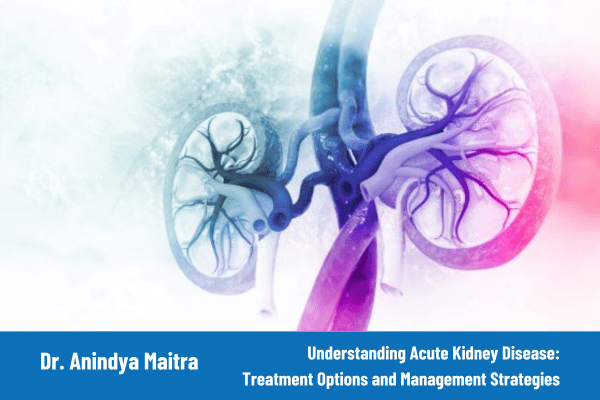Acute kidney disease, also known as acute kidney injury (AKI), is a sudden and potentially serious condition characterized by the abrupt loss of kidney function. It can arise due to various factors, such as dehydration, infection, medication side effects, or underlying health conditions. Prompt recognition and appropriate treatment are vital for managing acute kidney disease and preventing further complications. In this blog, Best Nephrologist in South Kolkata we will delve into the causes, symptoms, and treatment options available for this condition.
Causes and Symptoms:
Acute kidney disease can be caused by a range of factors, including decreased blood flow to the kidneys, kidney damage from medications or toxins, and blockages in the urinary tract. Common symptoms include decreased urine output, swelling in the legs or ankles, fatigue, shortness of breath, confusion, and nausea.
Treatment Options:
- Addressing the Underlying Cause: The first step in treating acute kidney disease is identifying and addressing the underlying cause. Depending on the specific trigger, interventions may include rehydration, adjusting medication dosages, discontinuing potentially harmful drugs, managing infections, or relieving urinary tract obstructions. By addressing the root cause, it is possible to improve kidney function and reverse the condition.
- Supportive Care: During the recovery phase, supportive care plays a crucial role in managing acute kidney disease. This includes close monitoring of fluid and electrolyte levels, maintaining a balanced diet, and managing associated symptoms. Patients may require intravenous fluids, electrolyte supplementation, or medications to control blood pressure and support kidney function.
- Dialysis: In severe cases where kidney function does not improve adequately, dialysis may be necessary. Dialysis is a medical procedure that filters waste products, excess fluids, and toxins from the blood when the kidneys cannot perform this function. It helps maintain electrolyte balance and removes harmful substances from the body. There are two main types of dialysis: hemodialysis, which uses a machine to filter the blood, and peritoneal dialysis, which utilizes the lining of the abdomen as a filtering membrane.
- Monitoring and Follow-up Care: After treatment, close monitoring and regular follow-up appointments are essential to assess kidney function and address any lingering issues. This allows healthcare providers to ensure the kidneys are recovering properly and to manage any potential complications.
Conclusion:
Acute kidney disease is a serious condition that requires timely diagnosis and appropriate treatment. By addressing the underlying cause, providing supportive care, and considering interventions such as dialysis when necessary, Top Kidney Specialists can help patients recover kidney function and prevent long-term complications. Timely recognition of symptoms and seeking medical attention promptly are crucial for managing acute kidney disease effectively and preserving overall kidney health.
